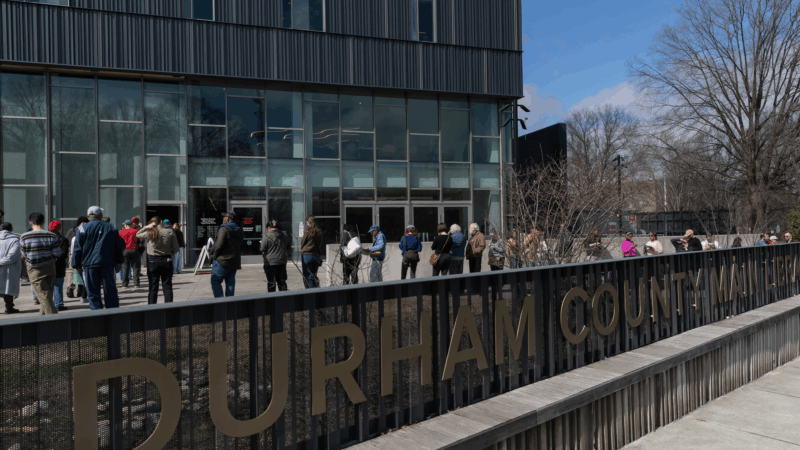Wastewater failures for Lowndes County’s Black residents at center of DOJ investigation
A sign welcomes visitors to Lowndes County in White Hall, Alabama. The U.S. Department of Justice opened an environmental justice investigation in November 2021 into the Lowndes County Health Department, along with the Alabama Department of Public Health, for their wastewater disposal and infectious disease and outbreaks programs.
The U.S. Department of Justice is opening up an investigation into the Alabama Department of Public Health and Lowndes County Health Department over concerns that the wastewater systems in rural Alabama discriminate against poor Black residents.
The investigation, opened Tuesday, is looking into the health departments’ wastewater disposal and infectious disease and outbreaks programs.
In a press release, the department said it is examining whether ADPH and LCHD are violating Civil Rights Law and whether the departments’ policies have reduced Lowndes County’s Black residents’ access to sufficient sewage and water systems and increased their exposure to harmful infections associated with poor wastewater management, such as hookworm — an intestinal parasite widely eliminated elsewhere in the U.S.
Lowndes County, where the population is largely poor and Black, has had complaints of poor infrastructure leading to raw sewage pooling in residents’ yards or backing up into their homes.
“Sanitation is a basic human need, and no one in the United States should be exposed to risk of illness and other serious harm because of inadequate access to safe and effective sewage management,” Kristen Clarke, assistant attorney general for the department’s Civil Rights Division, said in the press release. “State and local health officials are obligated, under federal civil rights laws, to protect the health and safety of all their residents.”
Title VI of the Civil Rights Act of 1964 blocks recipients of federal funding from discriminating based on race, color or national origin. The probe into Lowndes County’s sanitation systems is the department’s first Title VI environmental justice investigation for one of its funding recipients. No conclusions have yet been drawn.
This story was produced by the Gulf States Newsroom, a collaboration between Mississippi Public Broadcasting, WBHM in Birmingham, Alabama, WWNO in New Orleans and NPR.
The candy heir vs. chocolate skimpflation
The grandson of the Reese's Peanut Butter Cups creator has launched a campaign against The Hershey Company, which owns the Reese's brand. He wants them to stop skimping on ingredients.
Scientists make a pocket-sized AI brain with help from monkey neurons
A new study suggests AI systems could be a lot more efficient. Researchers were able to shrink an AI vision model to 1/1000th of its original size.
U.S. evacuates diplomats, shuts down some embassies as war enters fourth day
The United States evacuated diplomats across the Middle East and shut down some embassies as war with Iran intensified Tuesday while President Trump signaled the conflict could turn into extended war.
North Carolina and Texas have primary elections Tuesday. Here’s what you need to know
The midterm elections are officially underway and contests in Texas and North Carolina will be the first major opportunity for parties to hear from voters about what's important to them in 2026.
Kristi Noem set to face senators over DHS shutdown, immigration enforcement
The focus of the hearing is likely to be on how Kristi Noem is pursuing President Trump's mass deportation efforts in his second term, after two U.S. citizens were killed by immigration officers.
College students, professors are making their own AI rules. They don’t always agree
More than three years after ChatGPT debuted, AI has become a part of everyday life — and professors and students are still figuring out how or if they should use it.








